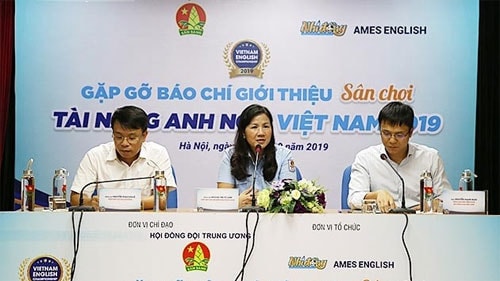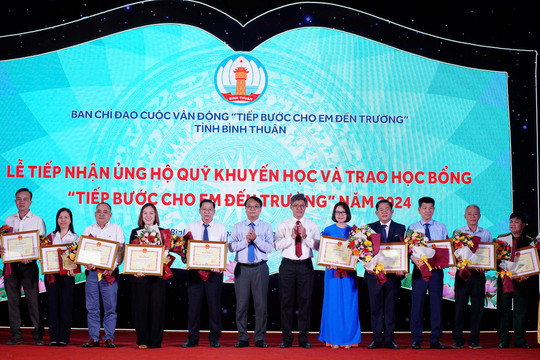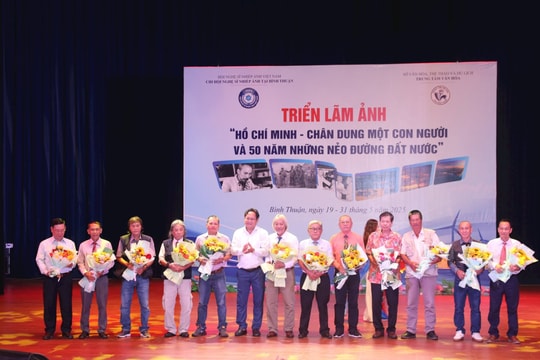 |
| The organisers announce the Vietnam English Championship 2019 at a press brief held in Hanoi on September 27, 2019. (Photo: NDO/Ngoc Vy) |
Launched by the Nhi Dong (Children) Newspaper in coordination with AMES International English System, the VEC promises to be a useful and interesting playground for students, with new and modern approaches under the support of artificial intelligence (AI) technology that is capable of recognising the voice of each candidate.
It is also the first time, candidates can take an interactive test like interacting with a real person through the messaging application on Facebook Messenger.
Contestants can choose to try different technology platforms, such as My AI English application (for mobile devices), the contest’s website at https://olympicenglish.vn/tainanganhngu or VEC’s fanpage on Facebook at https://www.facebook.com/TaiNangAnhNgu.
With four rounds including self-training, district level, provincial level and national finals, VEC 2019 will last until March 13 next year, opening for primary and secondary school students across the nation.
In the first round, which runs until October 31, candidates choose one of the three methods mentioned above to answer 20 English questions in ten minutes. Each candidate has the right to do the test five times a week and the system will record the highest score and update it into the rankings. Candidates who take five or more turns in the self-training round will be eligible to take part in the district round.
Contestants are divided into four pools: Pool 1 for students in Grades 1, 2 and 3. Pool 2 is for those in Grades 4 and 5. Pool 3 is for students in Grades 6 and 7, and Pool 4 for those in Grades 8 and 9.
The contest is part of activities under a cooperation programme of the Ministry of Education and Training, the Ho Chi Minh Communist Youth Union Central Committee and the Central Council of the Ho Chi Minh Young Pioneer Organisation for the 2019-2020 academic year, targeting to stimulate the love and development of learning culture for foreign languages in general and English in particular among students in elementary and primary schools nationwide.
Source: NDO




















.jpg)





.jpeg)

.jpeg)


.jpeg)


